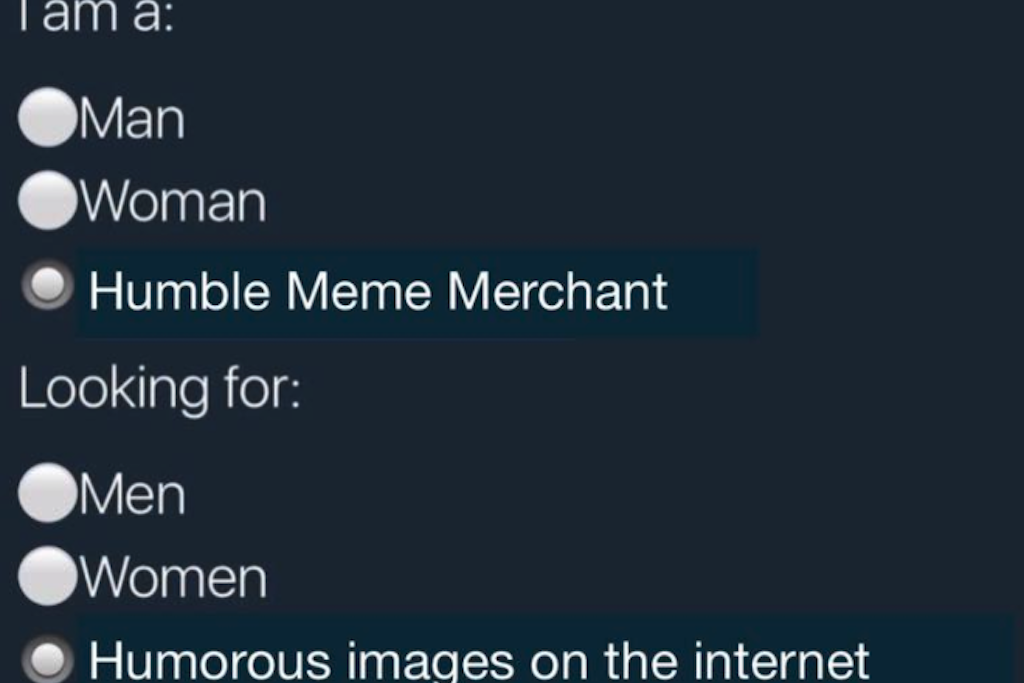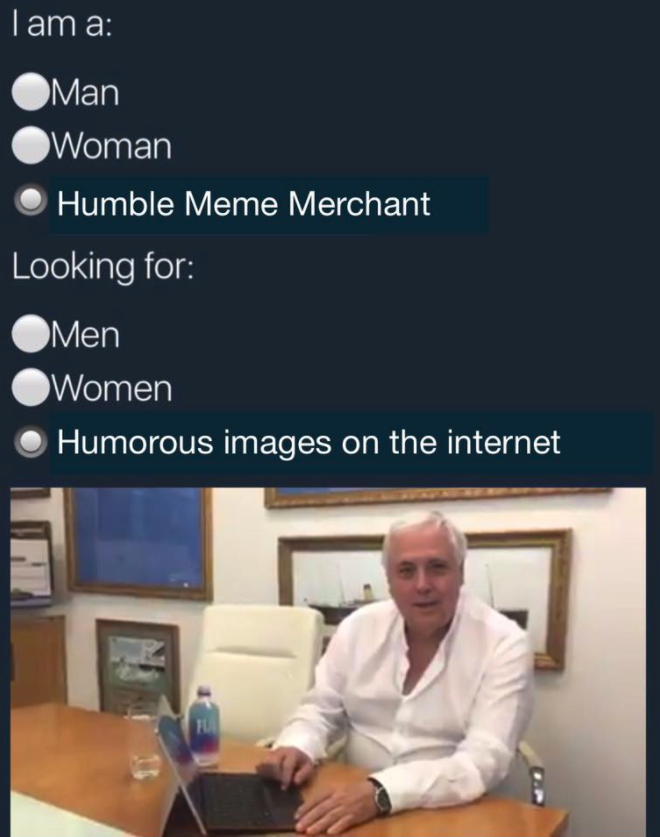Here’s Why Memes Are The Future Of Australian Politics
Hold my Cornetto: memes are taking over Australian politics.

A couple of young Liberals thought they were on a winner when they used Facebook and ice cream to take on some striking workers. They posted this to the NSW Young Liberals Facebook page:
Quick #cornettocaucus to support Streets Ice Cream. Nothing wrong with Australian jobs and investment. #reverseboycott #oneicecreamatatime
Posted by NSW Young Liberals on Tuesday, 31 October 2017
But instead of getting praise, they got absolutely smacked down. ALP Spicy Meme Stash came after them and oh my:
Posted by ALP Spicy Meme Stash on Wednesday, 1 November 2017
In fact, for one of the first times in Australia’s political history, a meme actually made national headlines. #Cornettocaucus became one of the defining moments of a workers pay dispute. And the workers ultimately won.
We’re not saying that this meme won a political battle, but we are saying it’s time we started giving these little jokes the status they deserve.
Memes are now a powerful political tool.
After a year in which Clive Palmer went rogue online by crafting an entirely new persona for himself, the Streets stoush made waves, and there were popular election-specific meme pages, it’s time we figured out how memes are changing our politics.
Do Political Memes Really Change Anything?
Guess how many people saw that ALP Spicy Meme Stash post above? 50,000? 100,000? Nah — more than two million people had that meme come up on their Facebook newsfeed.
Junkee spoke to the founders of both the ALP Spicy Meme Stash and it’s Liberal Party equivalent – Innovative and Agile Memes – to figure out what was happening behind the scenes of these meme pages. For two people who probably disagree on most things, the founders, who both wished to remain anonymous, agreed that memes are a way to connect with people who would otherwise not go near politics.
“The thing that’s often missed is that with young people, politics is very social,” said the man on the inside of Innovative and Agile Memes. “What your friends think has a very strong impact on what you think. And in the new age of social media tagging, people who have friends with similar political thoughts can now spread that far easier.”
This was clear when the founder of ALP Spicy Meme Stash launched a little side project — Kristina Keneally Memes for Bennelong Teens. The 20-year-old university student from Sydney started the page as a pure political tool. When he wasn’t thinking up memes to post, he was actually a volunteer on the ground for Keneally.
Within hours of Labor leader Bill Shorten’s announcement that Keneally would be the Bennelong candidate, the meme page was online. Posts consistently reached tens of thousands of people, like this one:
And again, one of the page’s memes lead to national headlines:
Surely John Alexander and his team should plug their phones in if they want to make sure their calls reach Bennelong from Bondi.
Posted by Kristina Keneally Memes for Bennelong Teens on Tuesday, 21 November 2017
Gaffes like these have always been amplified in the news. But in a new era where anyone can create a meme, they can reach even more voters in a much larger way.
Young people in particular are big fans of this type of politics. Studies and studies and studies have shown that if you give us a petition, a protest to attend or a Facebook post to share, we suddenly become a political force to be reckoned with.
So How Will Political Memes Be Used Next Year?
Major parties are scrambling to make the most of the big shift in political campaigning. Take this: a couple of years ago only 20 per cent of Labor’s marketing budget was spent on online efforts, but in upcoming elections Labor is preparing to double that share.
That’s what Labor’s marketing guru Dee Madigan told Junkee when we asked her about how they planned to use social media in the future.
“[Social media] used to be the thing that was used only to speak to people who were already on side — to gee up the troops, if you like,” Madigan said. “That’s where the change has been. I think a really good example would be the AMWU memes which spoke to not only their own members, but were used to galvanise public support.”
Hey Unilever- Streets Ice Cream. Not cool m8.www.amwu.org.au/streets
Posted by AMWU – Australian Manufacturing Workers' Union on Thursday, 7 September 2017
Madigan and the Labor party are increasingly using memes to target swing voters. In fact, they often directly feed memes to the ALP Spicy Meme Stash in an effort to reach a greater audience. The popular meme page isn’t just a joke amongst mates — it’s a weapon that the ALP is using to get out the vote.
Even the mode of online campaigning is rapidly changing: Madigan said that recent campaigns have been leaning a lot more on GIFs, because they found that people engaged with them more.
With a possible federal election and state elections happening in South Australia, Victoria and Tasmania next year, memes are going to be a crucial political tool in 2018.
So… Who’s Gonna Win?
Well, there’s an easy way to do this. ALP Spicy Meme Stash has more than 63,000 likes, while Innovative and Agile Memes has 36,000. There you go. Labor wins.
But that might not be the case for much longer. The founder of the ALP Spicy Meme Stash actually modelled the page off similar pages in the United States, where groups supportive of Bernie Sanders often reached a massive number of people.
“Not being in power benefits meme culture. It’s rebellious, it’s cool and it’s not the status quo,” explained our mate from the Stash, “That’s why memes with Bernie Sanders worked, but memes to do with Hillary Clinton didn’t.”
So while memes sympathetic to Labor are more popular now, a large part of that could be due to the party being in opposition.
And a lot of research actually shows that there’s another side effect — memes are a massive equaliser for smaller political parties, who might not have the money or the personnel to gear up for physical campaigns.
Madigan agreed:
“The online has democratised campaigning. It used to be that if you had a big TV budget you could beat the other brand. Now, with online you don’t have to have a big budget, as long as you are creating, and your stuff is getting shared. For campaigning, you want to create stuff that people are sharing — then they’re doing your advertising for you.”
Cory Bernardi’s renegade party, Australian Conservatives, has done this really well. During the shitshow that was the postal survey, Bernardi did things that had previously only been tried by the younguns: he made the ‘It’s OK to say No’ display picture frame that was widely used, and his page used slick graphics in an effort to appear as professional and well-resourced as the major parties.
Has the Liberal Party let you down on what was, until now, their party position on marriage? There is a better way – www.conservatives.org.au Join us and uphold our freedoms today
Posted by Australian Conservatives on Thursday, 7 December 2017
But Madigan reckons conservatives often failed to hit the nail on the head when it comes to humour.
“I don’t know what it is with the conservative mindset, but they don’t do humour very well — and it’s the clever, funny stuff that gets picked up outside a party’s bubble.”
Regardless, it’s clear that minor political movements are at least getting a foothold where they otherwise would not have. And while he’s now retired from politics, Clive Palmer’s bizarre Facebook page is another key example of this — he would have never have been able to create an entirely new (and misleading) persona online if not for his use of memes.
Palmer’s online brand is far different from his real life persona. In the real world, Palmer is facing legal action on a number of fronts, while online, he’s just a cool, daggy dad who’s amassed more than 130,000 Facebook fans and 81,000 Twitter followers.
And once political operatives realise that the key to his popular online image is memes, expect a lot more of this:
